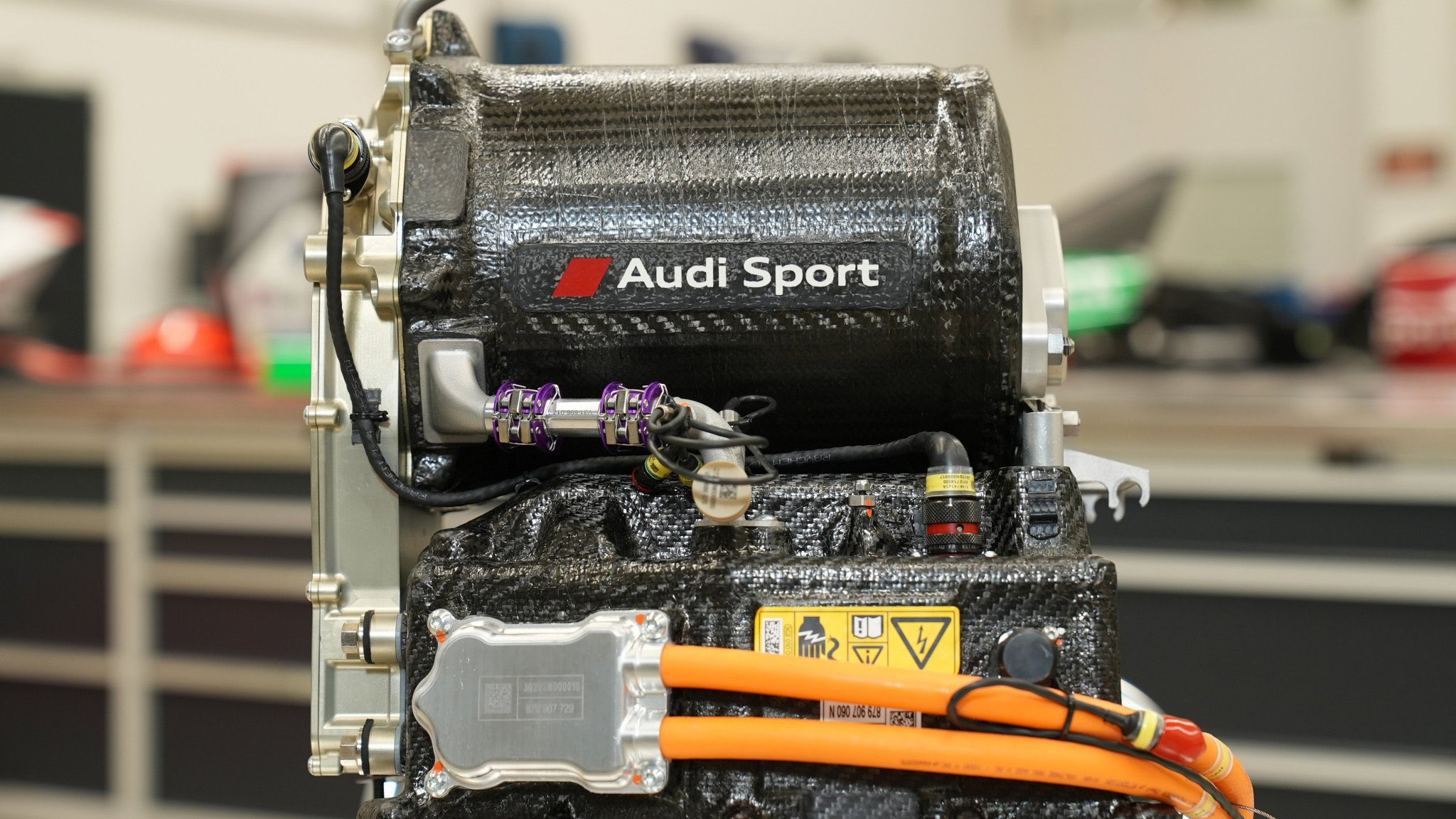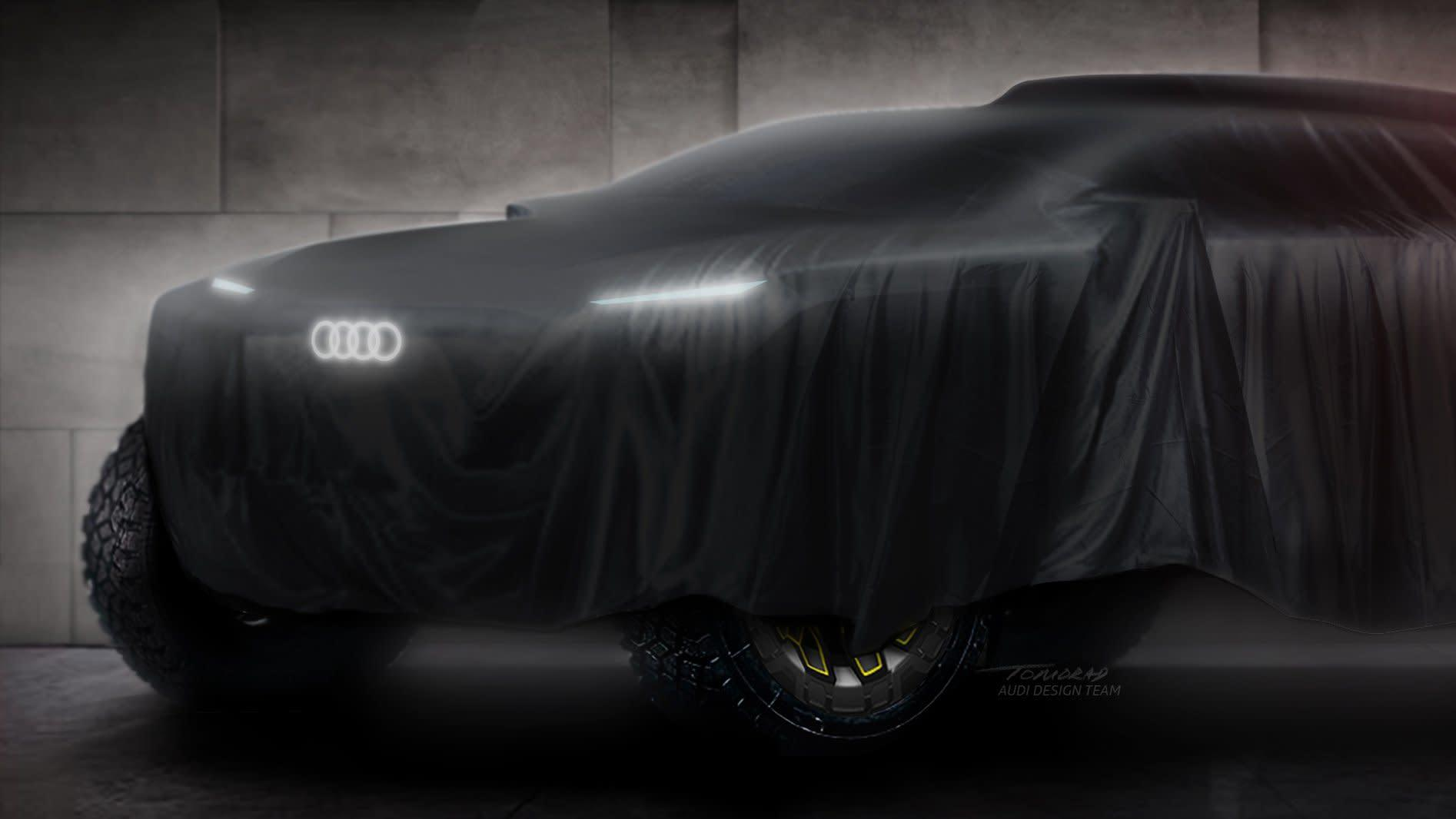Audi Is Shaping Its Motorsport Future Around Le Mans And Dakar Efforts
In a press release on Monday morning, Audi confirmed three things. Thing one, it would be entering the Dakar Rally in 2022 with a brand new factory-effort plug-in hybrid electric buggy. Thing two, it would be kicking off a new top-class sports car effort in IMSA and the WEC with a factory-built LMDh starting in 2022. Thing three, it would be leaving Formula E as a factory effort at the end of season seven next summer. Any one of those would be world-rocking admissions in the motorsport arena, but all three at once is a really big deal. Audi is completely changing tack on its racing future, and making it happen in quick time.
There are maybe five global races that average non-car enthusiasts even know about. Daytona 500, Indy 500, Monaco, Le Mans, and Dakar. By announcing that it would enter Le Mans and Dakar in the same year, Audi is setting a new precedent for global motorsport participation. And while this comes at the expense of the company's Formula E factory effort, it is likely that the Envision Virgin and ABT Schaeffler teams would continue to fly the Audisport flag in FE for the foreseeable future.
After Porsche, Audi is the second-most successful manufacturer in 24 Hours of Le Mans history, so it is hardly a surprise that the company would want to go back to fighting for overall wins at the world's most famous endurance race. When the four rings abandoned its LMP1 program in 2016, we didn't figure it would be gone for long. With new LMDh regulations coming for 2022 in the FIA WEC and then trickling into IMSA competition in 2023, it makes sense that Audi would want to get a jump on this new car setup. Of course, all of that was a slight surprise, as Audi hasn't so much as whispered the words Le Mans in four years.
After the near-complete collapse of the FIA's proposed Hypercar ruleset, with only a couple manufacturers actually taking them up on the idea, the European sanctioning body went crawling to Daytona with its collective tail between legs, and hat in hand. Looking to bolster its grid sizes in coming years, the FIA and IMSA worked together to develop the LMDh regulations to allow manufacturers to build a single car to compete on both sides of the Atlantic. It is expected that current DPi manufacturers Acura, Cadillac, and Mazda will return with the hybrid LMDh, while further interest has been expressed by Porsche, Hyundai, and Lexus. Audi will have some stiff competition here. And that's before you include the Hypercar entries from Toyota, Peugeot, ByKolles, and Glickenhaus.
As for the company's Dakar efforts, this is a complete fly ball out of left field, or whatever the sports analogy is. This was a surprise to everyone, possibly including some at Audisport. This is a first-time effort for the brand, and it will be done with what Audi calls "an electric drivetrain with a high-voltage battery and a highly efficient energy converter" which I assume means it'll have electric drive with a range-extending gasoline engine. Little is known about the program right now, but Audi says "Cross-country rallying will be the spearhead of the factory motorsport commitment in the future," which bodes well for the program lasting a long time and ranging beyond just Dakar.
This won't be the first time that Audi has brought an all-new drivetrain technology to a motorsport, as it pioneered all-wheel drive in rally environments, and was the first manufacturer to win at the 24 Hours of Le Mans with a diesel drivetrain, and later a hybrid drivetrain. Electric propulsion makes a lot of sense in environments like the Dakar Rally provides, as torque is an absolute necessity. That way pairing an electric motor's instant-delivery torque with the long-range drivability of a gasoline motor makes perfect sense for this kind of racing.
Now we get to the point where Audi says it'll be leaving the Formula E grid. Audi has been a part of the series since its inception in 2014, having won a teams and driver championship with the ABT Sportsline team and Lucas di Grassi in season three. At the end of season seven, Audi says it'll be hanging up its FE hat to focus on these hybrid off road and sports car efforts.
But, despite the press release and headlines around the motorsport world saying Audi is abandoning the all-electric series, I don't think it's quite so dire. Audi has technically only been involved as a factory effort since season four, prior to that working only as a partner with the ABT Sportsline team which also ran Audi's DTM efforts. Since season five Audi has also supplied electric motor generator units and drivetrain tech to the Envision Virgin team.
Here's the actual verbiage Audi used to describe its FE departure:
The Dakar Rally will replace Audi's factory involvement in Formula E, which will no longer be continued in the form of an Audi factory team after the 2021 season. The use of the newly developed Audi powertrain by customer teams will remain possible beyond next year.
The company just unveiled a brand new electric drivetrain unit on Thanksgiving Day which weighs less than the one it used last season. By the by, I need one of these, Audi. Send me one, please and thanks.

I don't believe Audi would be developing a brand new motor generator unit to just turn around and walk away from the series. This electric powertrain will be available to customer teams beyond the end of 2021. Thus far there has been no indication that either ABT Schaeffler or Envision Virgin would be departing along with Audi. This seems more to me like it will continue its efforts in Formula E at arms length as a powertrain supplier rather than a factory entry. ABT won a championship without official Audi involvement, and it there is no indication that will be any less possible after Audi leaves.
Overall, I'm very excited for what this means for the future of motorsport. If Audi running at Dakar with an alternative powertrain technology can bring interest from other manufacturers, we might have a resurgence of off-road racing like we haven't seen for a couple decades.
